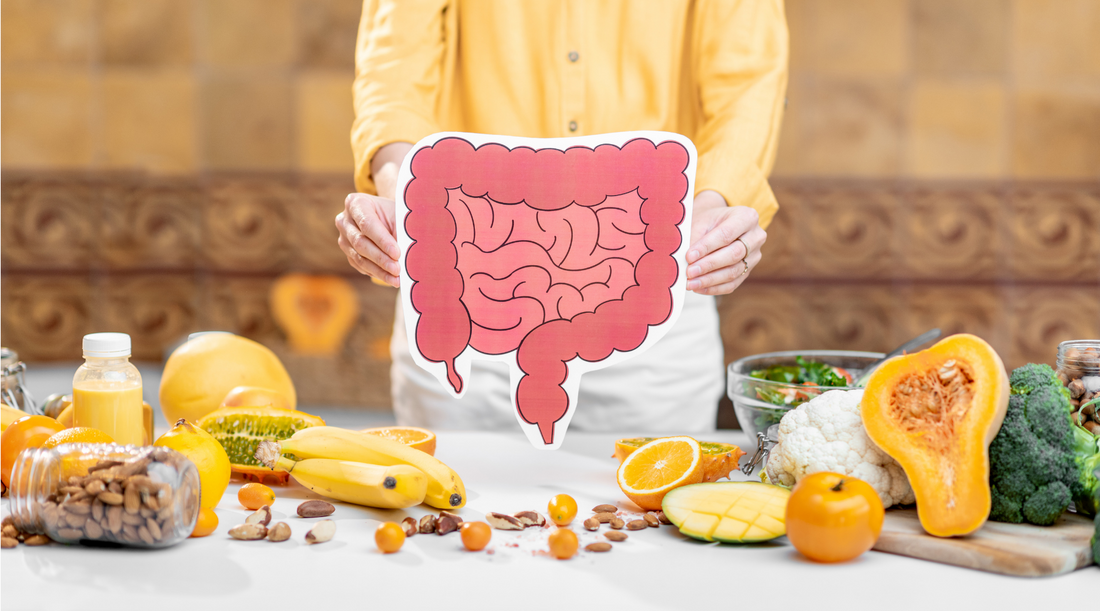Trillions of microorganisms, so-called bacteria, viruses, and fungi, live in your gut. They help you digest food, fight harmful pathogens, make vitamin K and other essential chemicals; affect how medications work; and may influence your immune system, heart health, and cancer risk. It also seems gut microbes may play a role in healthy aging and longevity. All the gut microbes in your intestine are collectively called the gut microbiome.
How do you make your gut microbiome more diverse and perform health benefits? It is primarily by lifestyle factors. Indeed, one of the reasons that a healthy lifestyle is good for your health is the impact of your lifestyle on the gut microbiome.
#1 Eat foods rich in fiber
Fiber is a type of carbohydrate found in plant-based foods, and it's categorized as soluble or insoluble. Soluble fiber absorbs water and forms a gel consumed by gut bacteria. Meanwhile, insoluble fiber passes through your digestive tract largely intact and helps provide bulk to your stool. Fiber makes food pass more quickly through the GI tract, thus promoting regular bowel movements.
Both types of fiber help with gut health by aiding digestion and preventing constipation. Good sources of fiber include beans, legumes, oats, food made with whole grains, other vegetables, and fruits.
#2 Include fermented foods

Fermented foods are a good source of probiotics. They contain living microorganisms like the health-promoting microbes found in our gut. Common bacteria found in probiotic foods include Lactobacillus and Bifidobacterium. By eating fermented foods, it can help boost the population of beneficial bacteria in the gut. Examples of fermented foods include tempeh, miso, kefir, kimchi, kombucha, sauerkraut, and yogurt.
Tips when choosing fermented foods: check labels for live, active cultures, which indicates the bacteria in the foods are still living. Living microbes are beneficial because they join the community of living microbes already in our gut.
#3 Keep stress under control
Stress and insufficient sleep quality can be hard on our whole body, including the gut. Studies show that stress can negatively affect digestive functions. When stress activates the fight-or-flight response in your central nervous system, it can affect the digestive system by increasing the acid in the stomach, which results in indigestion. In more severe cases, stress can cause irritable bowel syndrome (IBS), leading to inflammation or an imbalance of gut bacteria.
Some ways to lower stress may include meditation, exercising, getting a massage, yoga, and spending time with friends and family.
#4 Avoid diets high in saturated fats
A diet high in saturated fats can decrease intestinal floral diversity and lead to digestion problems like a leaky gut.A leaky gut is a condition where the intestinal barrier is impaired, and bacteria and other microbes can enter along with food nutrients into the bloodstream. This condition sets the immune system's stage to go awry, leading to systemic or whole-body inflammation. Systemic inflammation in the body can impair our skin's integrity and the protective role and cause skin problems such as acne and eczema.
#5 Consider supplements containing pre- or pro-biotics
Prebiotics are a type of fiber that also serve as food for our gut microbes and balance the intestinal flora composition. Probiotics are live bacteria consumed through foods or supplements to support digestive functions, immune health, and overall well-being. Supplements with pre- or pro-biotics may help the body build and maintain a healthy colony of microbes, which supports the gut, aids digestion, and boosts the immune system and overall wellness.
Something to keep in mind: There are a dozen probiotics over-the-counter. Do research the condition you wish to address and select the probiotic supplements based on your body conditions and needs. Also, always check with your physician first before taking a supplement.
Support beneficial microbes in the gastrointestinal tract start with these 5 healthy lifestyle habits.

